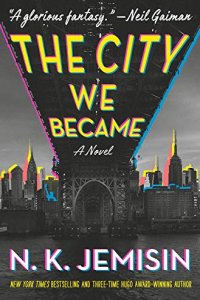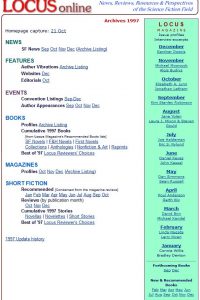Tumultuous Pleasure: 2020 in Review by Arley Sorg

As rough as the year has been for the country, it’s been a great time for reading. As if in response to the year itself, a slew of powerful books came out, expanding the scope of genre and engaging in conversations long overdue.
Tochi Onyebuchi’s Riot Baby kicked things off in January, on the heels of his excellent late-2019 release War Girls. The story follows Ella as her powers develop, and Kev, who was promising as a kid but ends up in prison. They negotiate their fragile relationship with each other and with their mother, who seems to seek to stifle Ella, all while the potential for Ella to accidentally hurt everyone around her increases. Ultimately, Ella has to figure out what to do with all that power. It’s a searing critique of systemic racism and the justice system, but it’s also a complex book about community, family, and anger.
In February Justina Ireland one-upped herself with Deathless Divide, the sequel to Dread Nation. Jane McKeene and Katherine Devereaux are trained zombie killers, but they are also Black women who have to make it across the Old West in one piece. It’s a great adventure story, and readers can enjoy it on that level, but it’s also an unflinching exploration of attitudes towards race and ugly US history. The characters are fantastic, and the book ends up being tremendously satisfying.
 In March, N.K. Jemisin gave us The City We Became, a fierce story about a group of strangers whose lives are upended when they become the embodiment of New York City. They band together to fight an interdimensional evil that devours cities when said cities awaken. Among many other things, it’s a glowing but quite frank love letter to New York. Highlights are amazing characters and the sort of sociocultural commentary you would expect from Jemisin, all wrapped up in a really fun story.
In March, N.K. Jemisin gave us The City We Became, a fierce story about a group of strangers whose lives are upended when they become the embodiment of New York City. They band together to fight an interdimensional evil that devours cities when said cities awaken. Among many other things, it’s a glowing but quite frank love letter to New York. Highlights are amazing characters and the sort of sociocultural commentary you would expect from Jemisin, all wrapped up in a really fun story.
S.L. Huang’s Burning Roses crushed fairytale retellings with thoughtful recontextualizations of iconic figures. Black Sun by Rebecca Roanhorse is full of surprises, with an intricate plot and worldbuilding which will stun even cynical fantasy readers. If I had to pick one more book to recommend, it might just be P. Djèlí Clark’s October title, Ring Shout. In 1922 Maryse Boudreaux and her friends hunt Ku Kluxes: demonic creatures who hide amidst the Ku Klux Klan. After slaying a few monsters, the friends uncover a larger plot, tied to the showing of notorious film The Birth of a Nation. Maryse and company have to stop the monsters from realizing their plan before it’s too late. Ring Shout is a smart cultural conversation with stellar characters, which leans into empowerment. It’s engaging, often funny, and entirely brilliant.
 As a short fiction fan, I was thrilled with so many marvelous collections and anthologies this year. Sheila Williams put in solid work with Entanglements, including a stunning story by Sam J. Miller, “The Nation of the Sick”; dave ring’s Glitter + Ashes offered imaginative tales of positivity and survival; and Meg Elison’s Big Girl demonstrated skill, clarity, and honesty to breathtaking results. But the short fiction books that excited me the most were A Phoenix First Must Burn by Patrice Caldwell and A Universe of Wishes by Dhonielle Clayton. Both books set out to create space for BIPOC voices. Both editors stuffed these books with incredible fiction from underrepresented perspectives and lived experiences. Favorites include Ibi Zoboi’s “Kiss the Sun” in Caldwell’s book, a tale of the soucouyants which draws on folklore as a backdrop for a deft discussion of women’s relationships with each other, as well as the impact of invasive developers on local culture and identity; and “Cristal y Ceniza” by Anna-Marie McLemore in Clayton’s book, a retelling of Cinderella that performs as nuanced class commentary while still being a wonderfully heartbreaking narrative.
As a short fiction fan, I was thrilled with so many marvelous collections and anthologies this year. Sheila Williams put in solid work with Entanglements, including a stunning story by Sam J. Miller, “The Nation of the Sick”; dave ring’s Glitter + Ashes offered imaginative tales of positivity and survival; and Meg Elison’s Big Girl demonstrated skill, clarity, and honesty to breathtaking results. But the short fiction books that excited me the most were A Phoenix First Must Burn by Patrice Caldwell and A Universe of Wishes by Dhonielle Clayton. Both books set out to create space for BIPOC voices. Both editors stuffed these books with incredible fiction from underrepresented perspectives and lived experiences. Favorites include Ibi Zoboi’s “Kiss the Sun” in Caldwell’s book, a tale of the soucouyants which draws on folklore as a backdrop for a deft discussion of women’s relationships with each other, as well as the impact of invasive developers on local culture and identity; and “Cristal y Ceniza” by Anna-Marie McLemore in Clayton’s book, a retelling of Cinderella that performs as nuanced class commentary while still being a wonderfully heartbreaking narrative.
If I listed all the books I enjoyed in 2020, this would be a very long column indeed. I can only hope that 2021 has as much to offer as 2020 did, perhaps without the real-world misery.
This review and more like it in the February 2021 issue of Locus.
 While you are here, please take a moment to support Locus with a one-time or recurring donation. We rely on reader donations to keep the magazine and site going, and would like to keep the site paywall free, but WE NEED YOUR FINANCIAL SUPPORT to continue quality coverage of the science fiction and fantasy field.
While you are here, please take a moment to support Locus with a one-time or recurring donation. We rely on reader donations to keep the magazine and site going, and would like to keep the site paywall free, but WE NEED YOUR FINANCIAL SUPPORT to continue quality coverage of the science fiction and fantasy field.
©Locus Magazine. Copyrighted material may not be republished without permission of LSFF.








